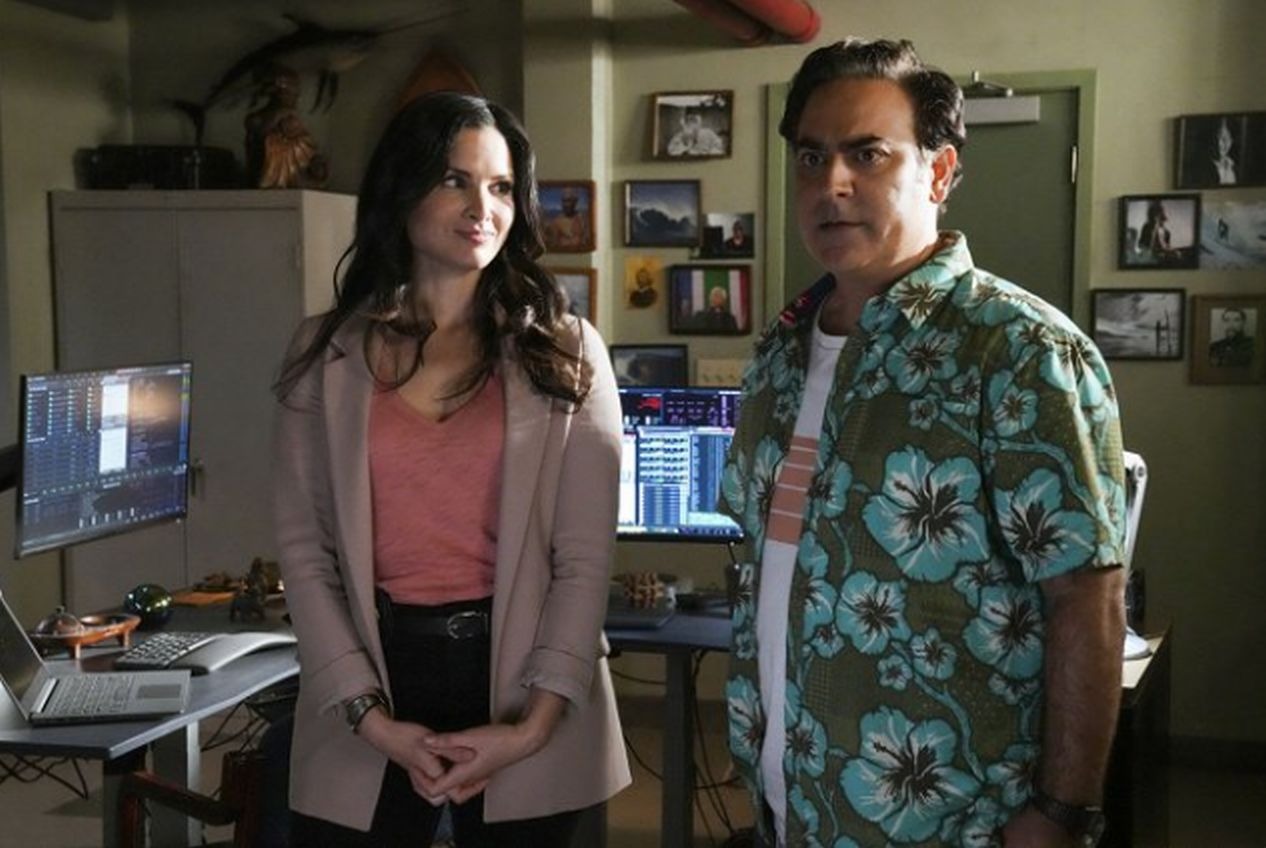
NCIS: Hawai’i became the shortest-lived NCIS franchise series due to budget cuts and CBS’s crowded schedule. The cancelation denied the show a proper series finale, leaving plotlines unresolved, including Jane Tennant’s past. Despite strong ratings, NCIS: Hawai’i was sacrificed to make room for new shows, illustrating the franchise’s oversaturation.
When the spin-off series NCIS: Hawai’i premiered on CBS in 2021, the show was notable for being the first series within the NCIS franchise to have a female lead, with Vanessa Lachey’s NCIS Special Agent in Charge Jane Tennant, who leads a team of special agents at the field office in Hawaii. However, NCIS: Hawai’i, which is the fourth series in the franchise and spans three seasons, now has the dubious distinction of becoming the shortest-lived series within the franchise following the show’s surprising cancelation. Moreover, the abruptness of the cancelation decision meant that NCIS: Hawai’i was denied the opportunity to provide the same series-ending closure that was afforded to previous spin-off shows NCIS: Los Angeles and NCIS: New Orleans, which ran 14 and seven seasons, respectively, before their cancelations.
With the cancelation of NCIS: Hawai’i, the lone existing spin-off series is NCIS: Sydney, the first series to be set outside the United States, which was recently renewed for a second season. The cancelation of NCIS: Hawai’i resulted from a combination of factors, including flat ratings, high production costs, and the need for CBS to make room on its increasingly crowded and deep schedule, which includes the upcoming prequel series NCIS: Origins.
TV shows come and go, but when a beloved series like NCIS: Hawaii gets canceled, it leaves fans shocked, frustrated, and desperate for answers. Whether you tuned in for the action, the tropical vibes, or the powerhouse female lead, one thing’s clear: this cancellation didn’t just break hearts—it raised questions. So, why was NCIS: Hawaii canceled?
Let’s dive deep into the behind-the-scenes drama, the ratings rollercoaster, and what this means for the future of the NCIS franchise.
What Was NCIS: Hawaii All About?
NCIS: Hawaii was a refreshing twist on the iconic NCIS formula. Set against the stunning backdrop of Oahu, the series followed Special Agent Jane Tennant, played by Vanessa Lachey, as she led a team investigating crimes involving military personnel. It was fast-paced, inclusive, and full of aloha spirit.
A Spin-Off With Promise
Launched in September 2021, NCIS: Hawaii quickly stood out thanks to its unique location, diverse cast, and strong female lead—the first in the franchise. It carved its own identity while still offering the crime-solving excitement fans loved.
Declining Ratings: The First Red Flag
Let’s be honest—TV is a numbers game. While NCIS: Hawaii started strong, its ratings gradually slipped over the seasons. It wasn’t a massive plunge, but in today’s competitive landscape, even a small drop can be fatal.
The Ratings Snapshot
-
Season 1 average viewers: 6.2 million
-
Season 2 average viewers: 5.5 million
-
Season 3 early numbers: 4.9 million
Ouch. That’s not catastrophic, but it’s definitely not ideal for CBS.
Network Politics: The Invisible Hand
Here’s the thing: sometimes it’s not just about ratings. Network decisions often revolve around budgets, contracts, and long-term strategies. CBS has been tightening the purse strings, and NCIS: Hawaii, with its location shoots and high production costs, became a financial risk.
High Costs of Paradise
Filming in Hawaii sounds dreamy, right? But that dream comes with a hefty price tag.
The Cost Breakdown
-
Travel & lodging for cast and crew
-
Location permits and logistics
-
Tax incentives that weren’t as juicy as they once were
In short, the tropical charm didn’t come cheap, and CBS had to consider cheaper alternatives.
Contract Negotiations Stalled
Word on the street? There were some tensions behind the scenes. Cast contracts, creative direction disputes, and budgeting battles may have played a bigger role than CBS is letting on.
The Fanbase Was Loyal—But Not Enough
NCIS: Hawaii had a dedicated fan following, but unfortunately, it wasn’t massive enough to make cancellation unthinkable. Social media buzz and online petitions helped, but CBS needs wide appeal, not just niche loyalty.
Scheduling Shake-Ups
NCIS: Hawaii often aired in tricky time slots. Sometimes it faced tough competition, sometimes it got shuffled around. Inconsistent scheduling hurt viewer retention, and the ratings reflected that.
Franchise Fatigue
Let’s be real—there are only so many NCIS spin-offs viewers can handle. With the original NCIS still going strong and NCIS: Sydney recently launching, CBS may have felt it was time to trim the fat and streamline the franchise.
What The Cast Had To Say
Vanessa Lachey and her co-stars shared emotional tributes when the news broke. Lachey, in particular, expressed deep sadness, calling it a “bittersweet farewell.” No one saw it coming this soon.
Global Reach Didn’t Save It
Sure, NCIS: Hawaii had a decent international audience, but streaming rights and global sales weren’t enough to justify the high costs. CBS is now more focused on scalable, streamable content.
Creative Differences and Shifting Focus
Some insiders hinted that showrunners and CBS didn’t always see eye to eye. With changes in leadership at the network, priorities shifted, and unfortunately, NCIS: Hawaii didn’t make the cut.
Final Season: Rushed and Abrupt
Many fans noticed that the final episodes of Season 3 felt rushed and unresolved. That’s because the cancellation came fast—and the writers didn’t get a proper chance to wrap things up.
What This Means for NCIS Fans
If you’re heartbroken over NCIS: Hawaii ending, you’re not alone. But don’t worry—the NCIS universe isn’t going anywhere. There’s still hope for character crossovers or even a spin-off revival down the road.

Is There Still Hope For A Revival?
Never say never. Just look at what happened with shows like Brooklyn Nine-Nine and Lucifer. If fan demand stays strong, and another network or streamer sees potential, NCIS: Hawaii could make a comeback.
The Final Verdict: Why NCIS: Hawaii Was Really Canceled
To sum it up, NCIS: Hawaii was canceled due to a combo of declining ratings, high production costs, network restructuring, and franchise fatigue. No one reason sealed its fate—it was death by a thousand cuts.
Conclusion
Losing NCIS: Hawaii stings—big time. It brought fresh energy to a long-running franchise, gave us memorable characters, and celebrated culture in a way that felt genuine. But in the world of TV, nothing is permanent. Even paradise has its limits. Still, fans can hold onto the memories—and who knows? A comeback might just be a hashtag away.